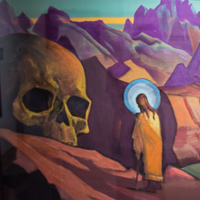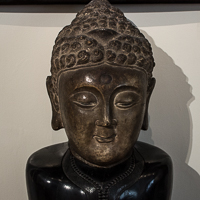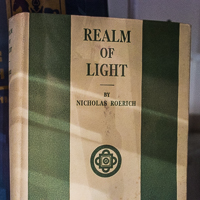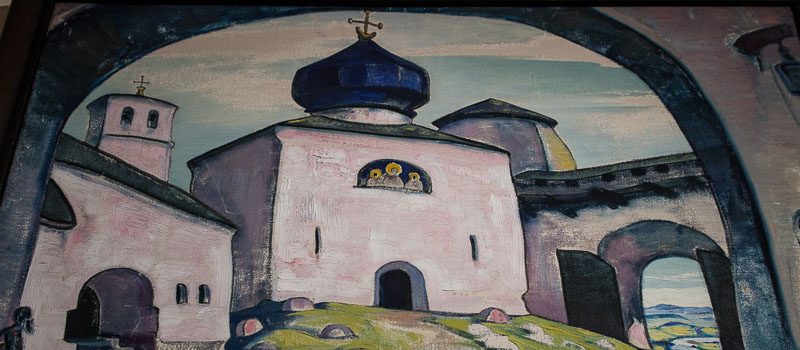
About the Museum
Nicholas Roerich is difficult to categorize. He began as a pre-revolution Russian painter focused on capturing the stark beauty of Russian landscapes and architecture. After the Revolution, Roerich began a journey that took him to Europe, New York City, the American Southwest, where his artistic ambitions transformed into philosophical and educational goals. He and his family then staged a number of expeditions into Asia, trekking through Tibet, Mongolia and ultimately settling in India to study native spiritualism. The New York museum (there is also on in Moscow and India), traces his long journey through the art he produced along the way.

What You Will See
While Nicholas Roerich accomplished much over the course of his eventful life, he began as a painter and continued to produce work throughout his journeys. The museum displays its impressive collection of Roerich's paintings. The art is arranged in roughly chronological order, allowing you to watch his style evolve as his views, philosophies, and locales change. His works are colorful depictions of grand, empty landscapes with some small indication of human presence: a building, a pilgrim, a god or a hero. Roerich's spirituality is on display, beginning with depictions of Russian saints and ending with Krishnas and Lotuses.

Why You Should Go
The Roerich Museum is a niche institution and well off the beaten path, but still worth a short visit even if you are unfamiliar with his life and work. The small gallery space is free to visit and fun to explore. Nicholas Roerich led a fascinating life that follows the story of the first half of the twentieth century. He rose to prominence in czarist Russia, toured roaring-twenties New York City, Chicago, and early California and spent the years between the wars becoming an expert in Asian cultural heritage. He was nominated for the Nobel Prize three times and was responsible for the <i>Roerich Pact</i>, leading to international legal recognition of cultural heritage during times of conflict.







